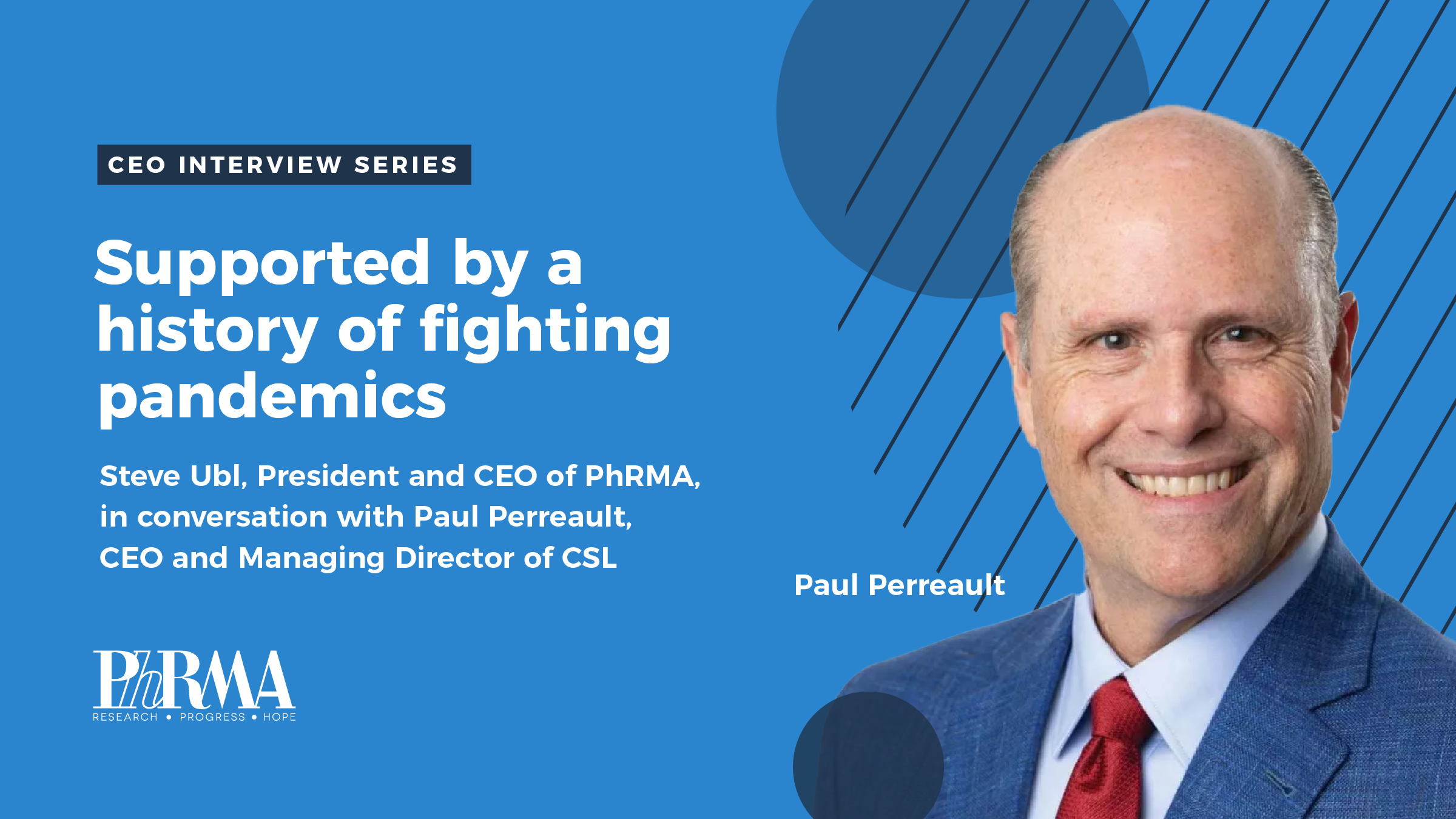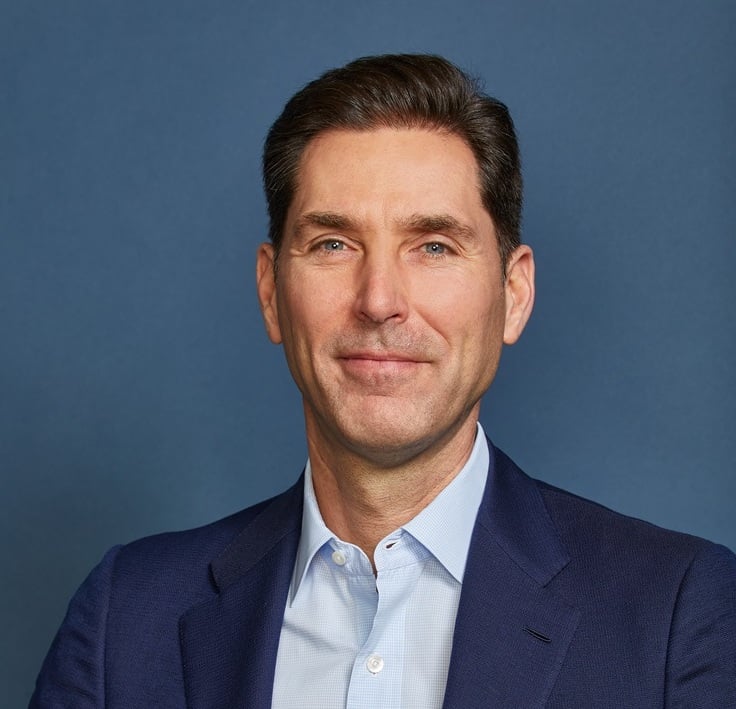This year, our industry has been working around the clock to combat the COVID-19 virus, including developing effective therapeutics to treat COVID-19 and vaccines to prevent future infections.
I had the opportunity to connect with Paul Perreault, CEO and Managing Director of CSL Limited, the world’s third largest biotech, about the company’s efforts to address COVID-19.
Stephen Ubl (SU): Paul, thanks for taking the time. We have all learned a lot over the last year and these lessons learned will serve us well moving forward. At CSL, you know all about that – weren’t you founded to aid in the fight against the last global pandemic, the 1919 influenza?
Paul Perreault (PP): That’s right. Since our start in 1916 during World War I, we have been driven by our promise to help patients and protect public health. In fact, our legacy in fighting infectious disease goes back even further to 1901, when Emil von Behring, one of the founders of CSL Behring, won the first Nobel Prize in Medicine for pioneering the use of plasma to treat patients suffering from diphtheria.
As we’ve grown into the third-largest biotech in the world, we have viewed ourselves as an organization that strives to be in constant advancements. We need to keep moving and changing shape to meet the evolving needs of our patients, and of course, the times.
The current pandemic is certainly one of the worst global health care crises we’ve experienced in our lifetime, but we’ve also seen over the past year what can happen when people across the scientific community, government, academia and industry work together in new ways.
The role of science in solving problems has been highlighted like never before and I think this crisis has shown us that we are more resilient and adaptable than we ever imagined ourselves to be.
SU: That’s incredible. You touched on this; can you expand on the work you are doing directly related to addressing COVID-19?
PP: Just like many organizations throughout our industry, CSL needed to be agile and adapt to the evolving environment that quickly became all things COVID a year ago – both operationally as well as applying our science and capabilities in response to the pandemic.
Most of us have had friends, family members and colleagues impacted by COVID, so the sense of urgency is lost on no one.
Since the start of the pandemic, we have very deliberately focused our energies on matching our science with our technical capabilities and facilities around the world. Monoclonal antibodies, hyperimmunes and vaccines – they are all in our wheelhouse. In fact, if you created an organization with the inherent capabilities to respond to COVID-19, the organization would look a lot like CSL.
We currently have multiple R&D programs underway focused on fighting COVID-19 and we are very fortunate and privileged to be able to commit to this work across several different areas.
We are one of the founding members of the CoVIg-19 Plasma Alliance to develop a potential plasma-derived hyperimmune therapy in the US and Europe. A Phase 3 trial began in October. We’re also working on a similar plasma product for the Australian market to be known as COVID-19 Immunoglobulin and this is under development at one of our Australia sites.
We also have an agreement in place with AstraZeneca and the Australian government to manufacture 50 million doses of the Oxford University / AstraZeneca vaccine candidate, and we’re on track to have the first of those doses ready for distribution – subject to TGA approval – in the second half of March.
Our Seqirus influenza vaccines business is also working to protect public health and help prevent what has been called – the ‘twindemic’– through our flu vaccines portfolio.
I’m heartened by the continued collaboration our industry has demonstrated and I think I can speak for everyone in biotech when we say that fighting COVID-19 is personal for all of us.
SU: It has been incredible to watch these partnerships – both public and private – form so quickly to rise to the challenge. It really underscores our industry’s commitment to patients. As a company operating in the rare disease space, can you share more about the patient-centric approach you take?
In our industry, being patient focused runs deep. We often talk about how each of our more than 27,000 employees at CSL come to work every day like someone’s life depends on it, because it really does.
Our medicines for people living with rare and serious diseases are not discretionary -- they are a necessity. Our role in ensuring patients have access to these medicines is an imperative, not an afterthought.
In the United States alone, the National Organization for Rare Disorders (NORD) estimates that more than 7,000 rare diseases affect 25-30 million Americans. That means one in 10 Americans are suffering from a rare disease and more than half of those patients are children. Too often people with a rare disease struggle to receive a proper diagnosis, find information or get the proper treatment.
At CSL our values of patient focus, superior performance, innovation, integrity and collaboration underscore our commitment to support the rare disease community — not only through our science and therapies, but also through our partnerships and collaborations with academic institutions and patient advocacy groups.
As always, you can stay up-to-date with the work the biopharmaceutical industry is doing to combat COVID-19 here.



